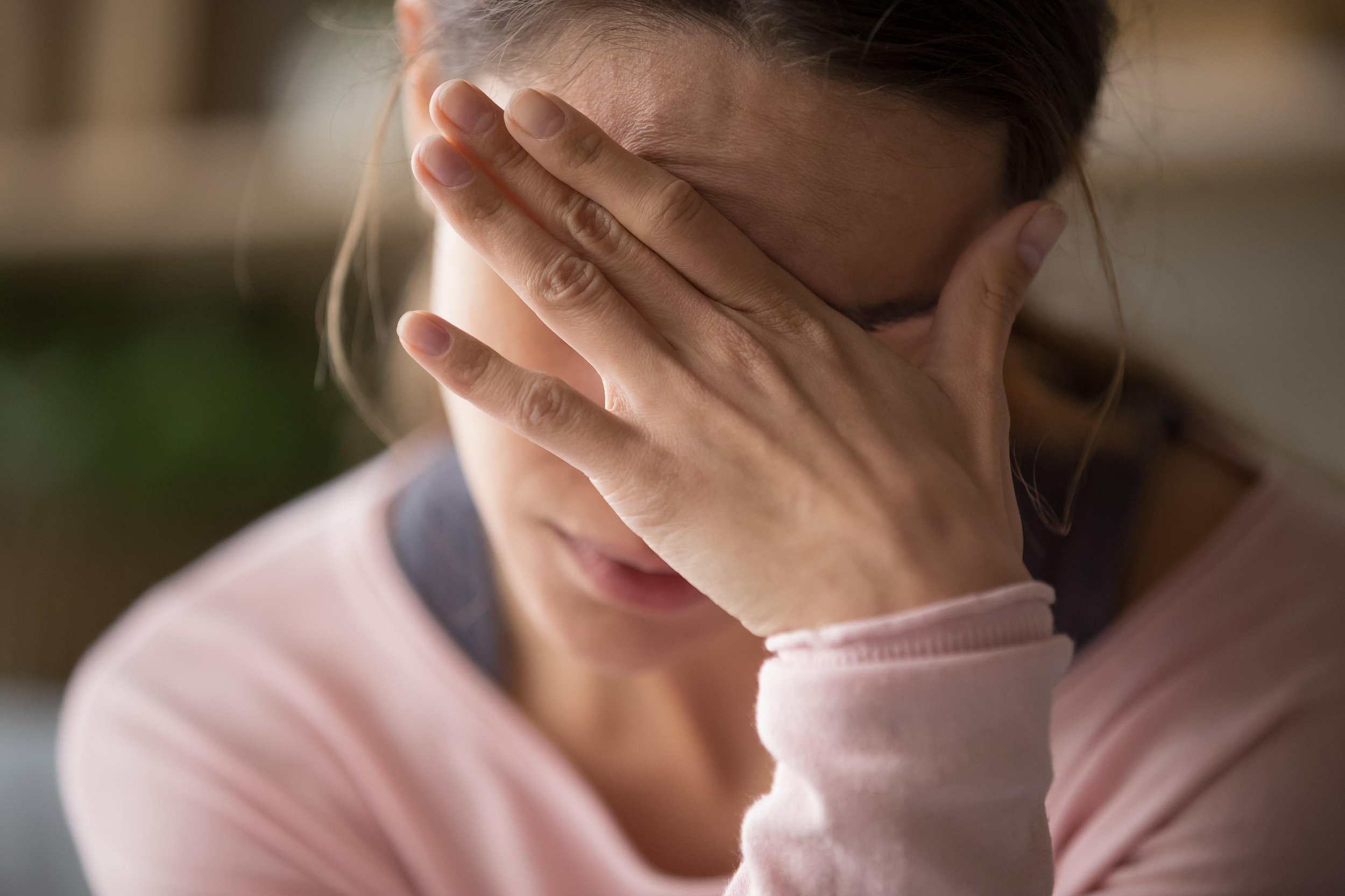Anxiety Disorders
Anxiety disorders are a type of mental health condition. Anxiety can make it difficult to get through your day. Symptoms include feelings of nervousness, panic and fear as well as sweating and a rapid heartbeat. Treatments include medications, cognitive behavioral therapy, and a variety of other therapies. Your mental wellness provider at Aptiva Health can design a treatment plan that works best for you depending on your individual symptoms.
What is an anxiety disorder?
An anxiety disorder is a type of mental health condition. If you have an anxiety disorder, you may respond to certain things and situations with fear and dread. You may also experience physical signs of anxiety, such as a pounding heart and sweating.
It’s normal to have some anxiety. You may feel anxious or nervous if you have to tackle a problem at work, go to an interview, take a test or make an important decision. And anxiety can even be beneficial. For example, anxiety helps us notice dangerous situations and focuses our attention, so we stay safe.
But an anxiety disorder goes beyond the regular nervousness and slight fear you may feel from time to time. An anxiety disorder happens when:
Anxiety interferes with your ability to function.
You often overreact when something triggers your emotions.
You can’t control your responses to situations.
Anxiety disorders can make it difficult to get through the day. Fortunately, there are several effective treatments for anxiety disorders.
What are the types of anxiety disorders?
There are several types of anxiety disorders, including:
Generalized anxiety disorder (GAD).
Panic disorder.
Phobias.
Separation anxiety.
Other mental health conditions share features with anxiety disorders. These include post-traumatic stress disorder and obsessive-compulsive disorder.
What are the symptoms of an anxiety disorder?
Symptoms vary depending on the type of anxiety disorder you have. General symptoms of an anxiety disorder include:
Physical symptoms:
Cold or sweaty hands.
Dry mouth.
Heart palpitations.
Nausea.
Numbness or tingling in hands or feet.
Muscle tension.
Shortness of breath.
Mental symptoms:
Feeling panic, fear and uneasiness.
Nightmares.
Repeated thoughts or flashbacks of traumatic experiences.
Uncontrollable, obsessive thoughts.
Behavioral symptoms:
Inability to be still and calm.
Ritualistic behaviors, such as washing hands repeatedly.
Trouble sleeping.
How are anxiety disorders treated?
There are numerous types of treatment, including, but not limited to:
Anti-anxiety medications - such as benzodiazepines, may decrease your anxiety, panic and worry. They work quickly, but you can build up a tolerance to them. That makes them less effective over time. Your healthcare provider may prescribe an anti-anxiety medication for the short-term, then taper you off or the provider may add an antidepressant to the mix.
Beta-blockers - usually used for high blood pressure, can help reduce some of the physical symptoms of anxiety disorders. They can relieve rapid heartbeat, shaking and trembling.
Cognitive behavioral therapy (CBT) - is the most common type of psychotherapy used with anxiety disorders. CBT for anxiety teaches you to recognize thought patterns and behaviors that lead to troublesome feelings. You then work on changing them.
Exposure therapy - focuses on dealing with the fears behind the anxiety disorder. It helps you engage with activities or situations you may have been avoiding. Your provider may also use relaxation exercises and imagery with exposure therapy.






